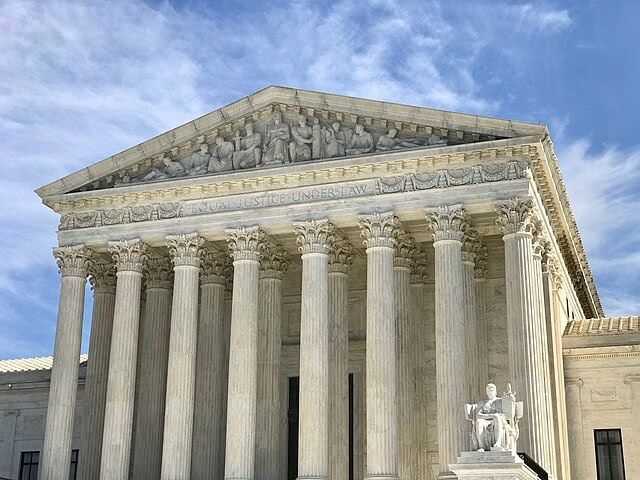
The U.S. Supreme Court’s Strategic Denials in Early 2025: A Pause in the Election Law and Gun Rights Debates
In early 2025, the U.S. Supreme Court made a significant move by quietly rejecting three important appeals that were poised to address some of the most contentious issues in American public life. These cases, involving state-level regulation of federal elections and the reach of Second Amendment rights, presented opportunities to clarify and potentially reshape the legal landscape in these polarized areas. Yet, despite the political and legal significance of the issues at hand, the justices chose not to intervene, leaving the lower court decisions intact and effectively pausing these high-stakes debates for the time being.
These denials—occurring in cases from Montana, Delaware, and Maryland—showcase the Supreme Court’s approach to a polarized political landscape. By withholding its intervention, the Court signaled its reluctance to make sweeping decisions at this moment, preferring instead to let legal questions develop further in lower courts before offering a definitive ruling. For both election law and gun rights, this pause leaves crucial questions unresolved, leaving legislators, advocacy groups, and state courts to continue navigating these issues.
The justices’ choices in these cases also reveal something important about the current direction of the Court. As it stands, the Court appears to be adopting a more measured, cautious approach in cases involving contentious social and political issues. This move is significant given the current political climate and the fact that many of these cases touch on matters that are deeply divisive.
This article examines the legal details and broader implications of the Supreme Court’s decisions in early 2025, offering an in-depth exploration of the cases involving election law in Montana, gun rights in Delaware and Maryland, and the ongoing legal battles surrounding the interpretation of the U.S. Constitution in these crucial areas.
The Jacobsen v. Montana Case: An Election Law Battle and the Independent State Legislature Theory
One of the major cases that the Supreme Court declined to hear in January 2025 was Jacobsen v. Montana Democratic Party. This case centered on two key election laws in Montana, both of which had been challenged and struck down by the state’s highest court. These laws were House Bill 176, which eliminated same-day voter registration, and House Bill 530, which banned most third-party ballot collection on Election Day.
The laws had a direct impact on voting practices in Montana. While supporters of these laws argued that they would streamline the election process and reduce opportunities for fraud, opponents claimed that they disproportionately affected vulnerable populations, particularly Native American communities, students, and elderly residents in rural areas where access to polling places and voting assistance is limited.
The case arose when Montana’s Republican Secretary of State, Christi Jacobsen, petitioned the U.S. Supreme Court to reinstate the laws, arguing that the Montana Supreme Court had overstepped its bounds in striking them down. Jacobsen’s legal team framed the case as an opportunity to further define the scope of the “independent state legislature” (ISL) theory. The ISL theory posits that state legislatures have absolute authority over the regulation of federal elections, unimpeded by state courts or other branches of government.
Supporters of the ISL theory believe it is crucial to preserve the legislative authority of state lawmakers, while critics argue that it opens the door for partisan gerrymandering, voter suppression, and erosion of voting rights. The theory gained renewed attention after the 2020 election, and its legal implications were explored in the 2023 Supreme Court case Moore v. Harper. In that case, the Court ruled that North Carolina’s state courts had not overstepped their authority in striking down a congressional district map drawn by the legislature, but it also left some key questions unresolved.
Jacobsen’s legal team hoped that the Jacobsen case would give the Court the opportunity to address these unresolved questions and clarify the limits of state legislative power in regulating federal elections. However, in January 2025, the Court declined to hear the case, leaving the Montana Supreme Court’s ruling intact and allowing the laws to remain struck down.
The Independent State Legislature (ISL) Theory: Background and Impact
To understand the significance of the Jacobsen case, it’s important to first understand the ISL theory itself. The theory is based on a literal interpretation of the Elections Clause in Article I of the U.S. Constitution, which states that the “Times, Places and Manner” of holding elections for federal offices “shall be prescribed in each State by the Legislature thereof.”
